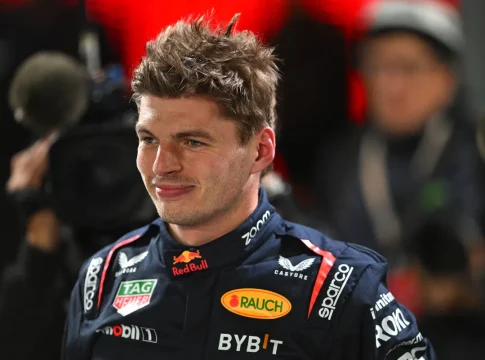Max Verstappen isn’t just winning races – he’s winning people over.
The three-time Formula 1 champion has often been painted as cold and robotic by some media outlets, especially in Britain. But those who know him tell a different story.
Behind the wheel, he’s ruthlessly efficient. Away from the track? He’s surprisingly down-to-earth.
“He’s one of the most approachable drivers in the paddock,” says one F1 insider. Unlike some stars who hide behind walls of security, Verstappen regularly stops for fans, signs autographs, and takes selfies with anyone who asks.
That friendly side is finally getting noticed after his latest championship win. Even the British press, once his harshest critics, are warming up to him.
Take what happened after he clinched the title in Las Vegas. At 3 AM – hours after the race ended – Verstappen was still on track, chatting with Dutch journalists who’d traveled across the world to see him. He didn’t have to do that. He wanted to.
The more championships he wins, the more relaxed he seems to become. During post-race interviews that night, with a beer in hand and gin and tonic nearby, Verstappen opened up like never before.
He talked about what really matters to him: family.
It’s a subject he usually keeps private. But that night, he spoke about his parents and sister who sacrificed everything for his racing career. “They won’t be around forever,” he said, explaining why he makes time for them whenever possible.
Netflix’s Drive to Survive tried casting him as the villain of F1, while portraying drivers like Daniel Ricciardo and Lewis Hamilton as the heroes. But that narrative is getting harder to maintain.
These days, fans are seeing a different side of Max – like his role as a father figure to his girlfriend Kelly Piquet’s daughter, Penelope. It’s these glimpses of his personal life that show who he really is.
Turns out the “robot” is pretty human after all.

